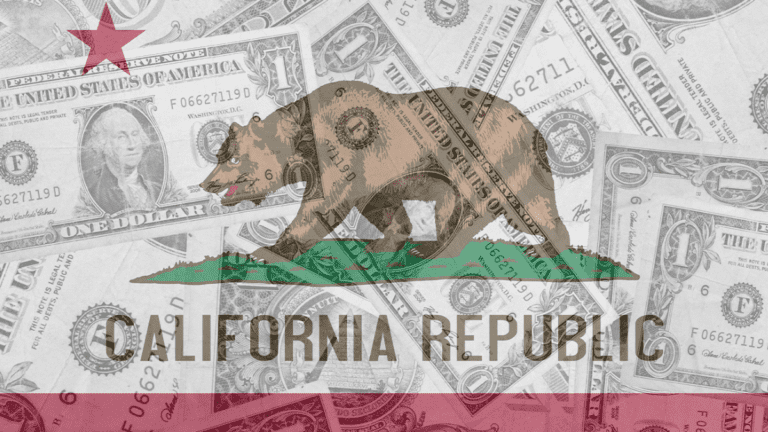
by OAKLAND POST
California Black Media’s McKenzie Jackson
According to a report issued by the state’s nonpartisan Legislative Analyst’s Office, California’s government may face a $25 billion budget shortfall in the coming fiscal year as tax revenues decline (LAO).
Legislative Analyst Gabriel Petek stated during a Nov. 16 video press briefing that if the predicted downturn occurs, it will be the Golden State’s worst revenue performance since the 2008-2009 Great Recession.
“It’s not trivial, but it’s also manageable,” Petek said. “We don’t see this as a budget crisis. We simply regard it as a significant budget issue that the Legislature will have to address when it convenes in January.”
In the 20-page “The 2023-24 Budget: California’s Fiscal Outlook,” the LAO, the state Legislature’s fiscal and policy advisor, details the budget shortfall and suggests ways to avoid it.
The document is released around this time each year to assist California lawmakers as they begin to draught budget proposals for the upcoming fiscal year.
Petek stated that the threat of a national recession and Federal Reserve actions influenced the report’s outlook, but the predicted numbers are not based on a recession occurring.
“Economic conditions are really weighing on revenue estimates, which are a significant influencer of our fiscal output,” Petek said. “With elevated inflation, the Fed is forced to intervene to cool the economy in order to reduce inflation. The longer and higher inflation persists, the more aggressive the Fed must become. And the more aggressive the Fed has to be, the more likely the economy will enter a recession. As a result, our revenue projections do not include a recession.”
California taxes the wealthy more than other states, so the majority of the revenue decline is due to the rich not making as much money as they used to. According to the report, California could face deficits ranging from $8 billion to $17 billion in the coming years.
Spending less on large, one-time allocations is one way the state can offset expected revenue losses.
Assembly Speaker Anthony Rendon (D-Lakewood) responded to the LAO budget prediction by saying the state has budget resiliency — $37.2 billion in reserves.
“We can and will protect the recent year’s budget progress,” Rendon said. “The Assembly will protect California’s historic school funding gains in particular, as districts must continue to invest in retaining and recruiting staff to help kids advance and recover from the pandemic.”
State Senate Pro Tempore Toni Atkins (D-San Diego) stated that in the past, the bleak budget forecast would have resulted in program cuts and tax increases for the middle class.
“That doesn’t have to be the case this year,” said Atkins. “Thanks to our responsible approach, we are confident that we can protect our progress and craft a state budget without ongoing cuts to schools and other core programs or taxing middle class families. The bottom line is simple: we are prepared to maintain our gains and pick up where we left off once our economy and revenues recover.”
Petek advised legislators not to rely on reserves to solve the state’s budget shortfall when formulating the state spending plan in early 2023.
“It would be prudent to try and identify other solutions in the early part of the budget period, and then if and when we have a lot more information about the economic situation — for example, if revenues have deteriorated or if there is a recession, we are certainly not saying don’t use the reserves,” he said. “We are saying, keep them on hold and you have them to turn to in that situation if the picture has gone south in May. You have resources that we can draw on to supplement the other solutions identified earlier in the process.”
The report, according to Republican Assembly member Vince Fong (R-Bakersfield), is a wake-up call.
“With persistent inflation, the revenue that is coming into the State of California is coming in way below projection,” Fong said. “As someone who has been on the budget committee for a number of years, we have been warning about this. Sacramento’s ruling party continues to spend and expand government programs without accountability, and the budget is completely unsustainable. We must rediscover fiscal responsibility.”
The LAO’s budget forecast follows Gov. Gavin Newsom and the Democratic-controlled Legislature’s estimated $97 billion surplus, which resulted in the expansion of Medical eligibility to all immigrants in 2024, an increase in the earned income tax credit, and free preschool for 4-year-olds.
Legislators also approved a $17 billion relief package in June to assist families, seniors, low-income Californians, and small businesses.
According to the LAO, once a budget is passed, the surplus is gone, so the fiscal outlook provided to legislators assumes that current state laws and policies will remain in place.
“We make adjustments for caseloads and other factors that influence budget expenditures, but what would your budget picture look like if you kept the same policies?” Petek stated. “That’s what we’re hoping to set up for them while they wait for the governor’s proposal.”